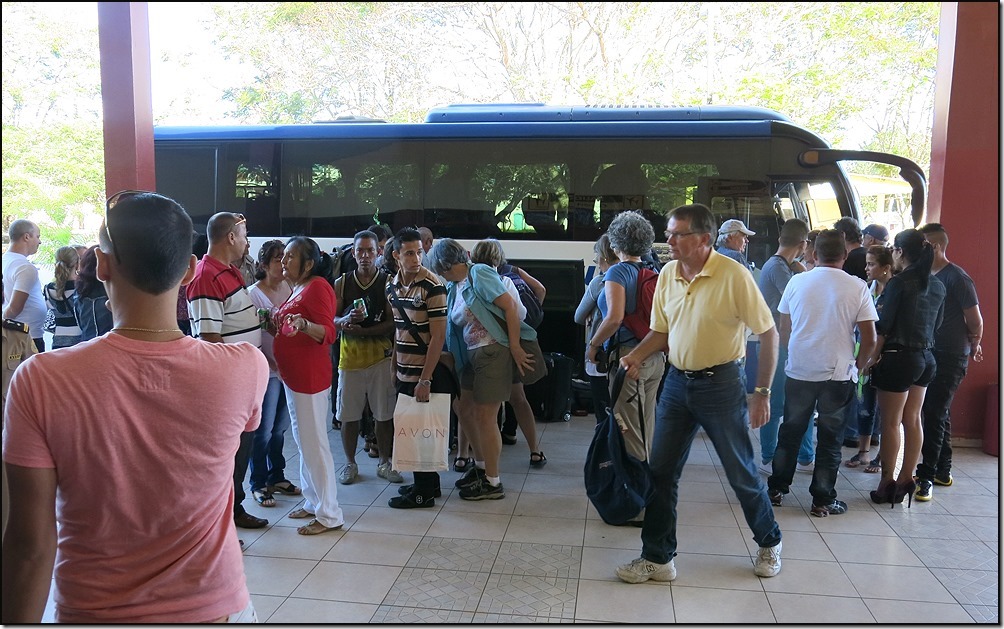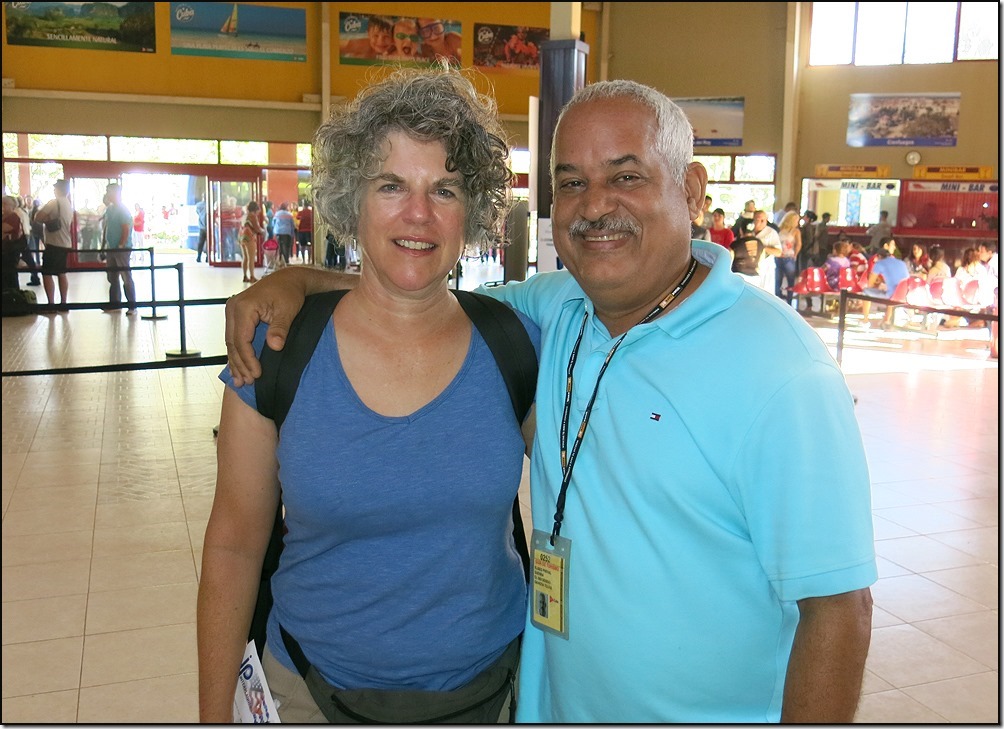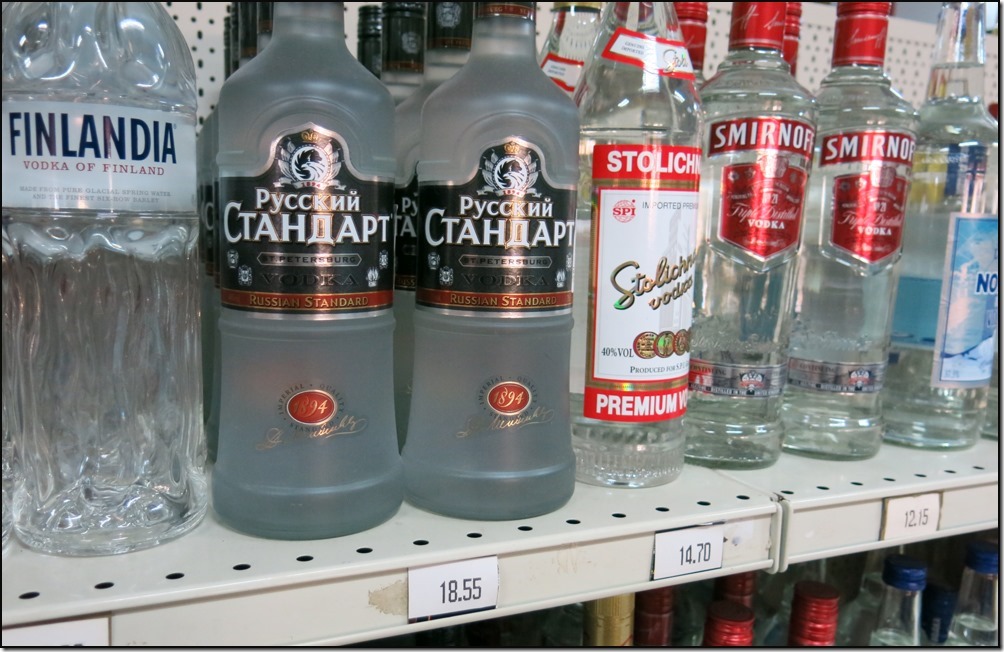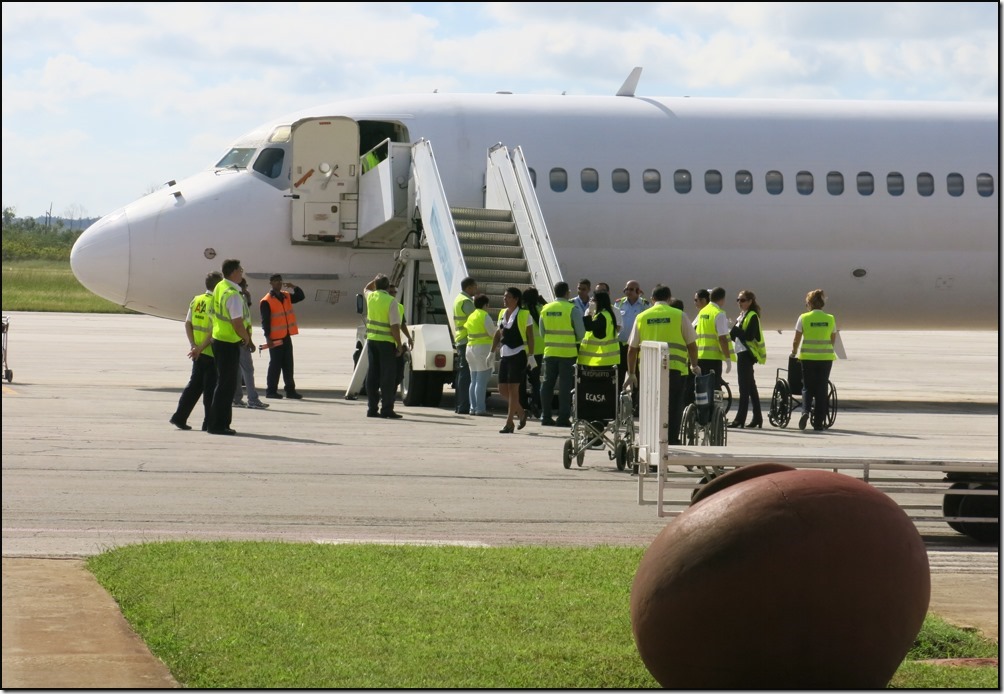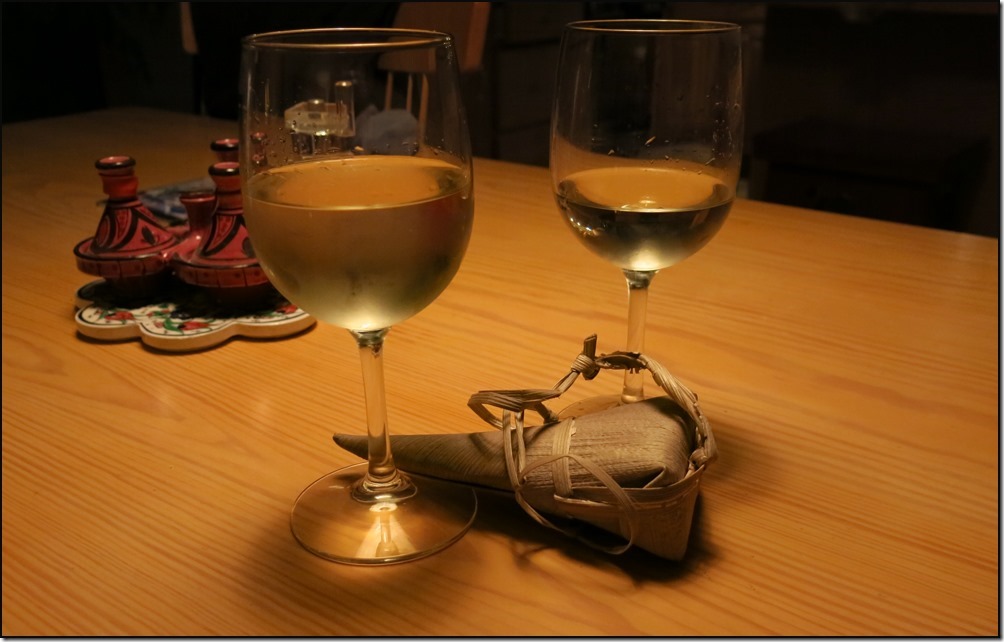The morning started with an early breakfast and final load up for our trip to the airport. Twenty minutes later we were there, hoping our plane would leave a the scheduled 10:30am flight time and not face similar delays like we had experienced on the way over from the US.
Lots of Cubans the heading to Miami, too.
Eliseo put on his ‘official guide’ lanyard and made sure each of us made it through customs with our $25 CUC Cuban departure tax and passport in hand. At the back of each immigration booth there was a red door and when they buzzed it and you walked through you were on the way out of Cuba. Here emJay says good bye to our new and dear friend whom we all hoped to see again when he travels to the United States. Last year he traveled to Vancouver with the Cuban All Star team serving as their interpreter at the world baseball event. He and his wife then then spent two months in the US!
Once we got through customs and to the final waiting room there was lots of chance to spend any CUC’s one had left in their pocket. CUC’s cannot be spent outside of Cuba, so our goal was to leave with zero! Lots of international liquors including many from Russia.
The plane arrived on time and seemed like it was greeted by the ENTIRE airport staff. Most of us were given extra legroom seats in the 4 exit aisles because we could speech English like the crew.
The plane lifted off on time and soon, only a 90 mile flight, we were back on US soil. We spent the afternoon and evening at South Beach and over dinner discussed the contrasts of Cuban life as to that of the SOBE area, which of course is nor typical of the general US. Talk about night and day comparisons!!
In two days time, everything was unpacked and washed, suitcase’s put away, souvenirs put on the shelves. It was a fine time for a glass of wine and our last “coocooroucho”.
FINAL THOUGHTS AND CONCLUSIONS:
Cuba was a most memorable trip.
Three things come to mind:
The Land. As many have said the best thing that has happened to conservation and the ecology of Cuba is communism. Although the Cuban people have a strong environment bent, the revolution of the past 50 years basically stopped all development. Many areas remain pristine with not much of a human footprint or disturbance. There is very little litter in the rural or urban environments, when compared to the US or other countries in the Americas. One reason may be there is so little ‘junk food’ available to the population along with is wrappers and plastic bottles. Of course they do have one HUGE cobalt and nickel mining industry with vies with tourism for the number 1 and 2 source of income for the island. The staff we met during the week were VERY professional, knowledgably and doing the best they could with the resources they have available. One thing they all have to their advantage is the Cuban peoples spirit of protecting the environment. A fear of many is eventually the island will be ‘opened’ when we drop the embargo and things could change. Most of us felt the Cubans will remain conservation conscious and protect what they have.
The People. we met in the cities and countryside were very friendly and always tried to make us at home. Tourism is a HUGE part of their economy but they seemed especially friendly when they found out we were actually from the US and not just another Canadian tourist. Politics aside, the Cubans want to raise their families, be safe and have a future just citizens in any other country. Our thumb of oppression has prevented their economic advancement. The reasons that may have made sense 50 years ago to create the economic embargo seem so miss-guided in 2014. We seem to be friends with every other country in the world now, other than North Korea and Cuba. Good reason probably for North Korea, but Cuba is no North Korea. Rich Cubans in Florida, New Jersey and around the US have enough political sway (READ: political contributions) that there is no change foreseen in the near future. It may take a generational change to make it happened. As we like to say . . .”Democracy . . . may not be perfect but it’s the best government money can buy!”
The Economy. In 1993 when the Soviet Union pulled out of Cuba because of their own problems, evidently Fidel told over 500,000 Cuban government workers they no longer had jobs and should go out and ‘start a private business’. Many of the entrepreneurial types did and have now formed what is called the ‘inverted economic pyramid’ in Cuba. In the US, it is the captains of industry, doctors, lawyers and other professionals who are at the top of the pyramid. Considering doctors, lawyers and other professional in Cuba make about what a teacher or street cleaner make, it is the ‘private entrepreneurs’, primarily working in the private sector industry, that are becoming the wealthy. In fact, the private all inclusive resorts were ‘off limits’ to Cubans until just 5 years ago when the government relaxed their control. Now 30% of the visitors to the large joint venture resorts are Cuban. Cuba is no longer a classless society.
Restaurant and B&B owners are becoming the wealthy of the country. Our bus driver Albert had been a lawyer for ten years and quit to become a coach driver. More lucrative? You bet. Doctors are have starting new careers as restaurateurs’. The tips we gave Alberto and Eliseo for the services they provided equaled about three years of a normal Cuban government ‘salary”. Interestingly, there has never been an income tax in Cuba until recently. It’s only on tips made by those working in the tourism sector and can be as high as 50%. The fee is not called a tax, but a contribution, that is used to purchase pediatric medicines in hospitals.
The trip to Cub was definitely and eye opener. As we were told . . . ‘Cuba is only 90 miles away from the US but it is another world.’ It is . . . but things are changing. I’m glad we had a chance to experience Cuba before major changes take place.

